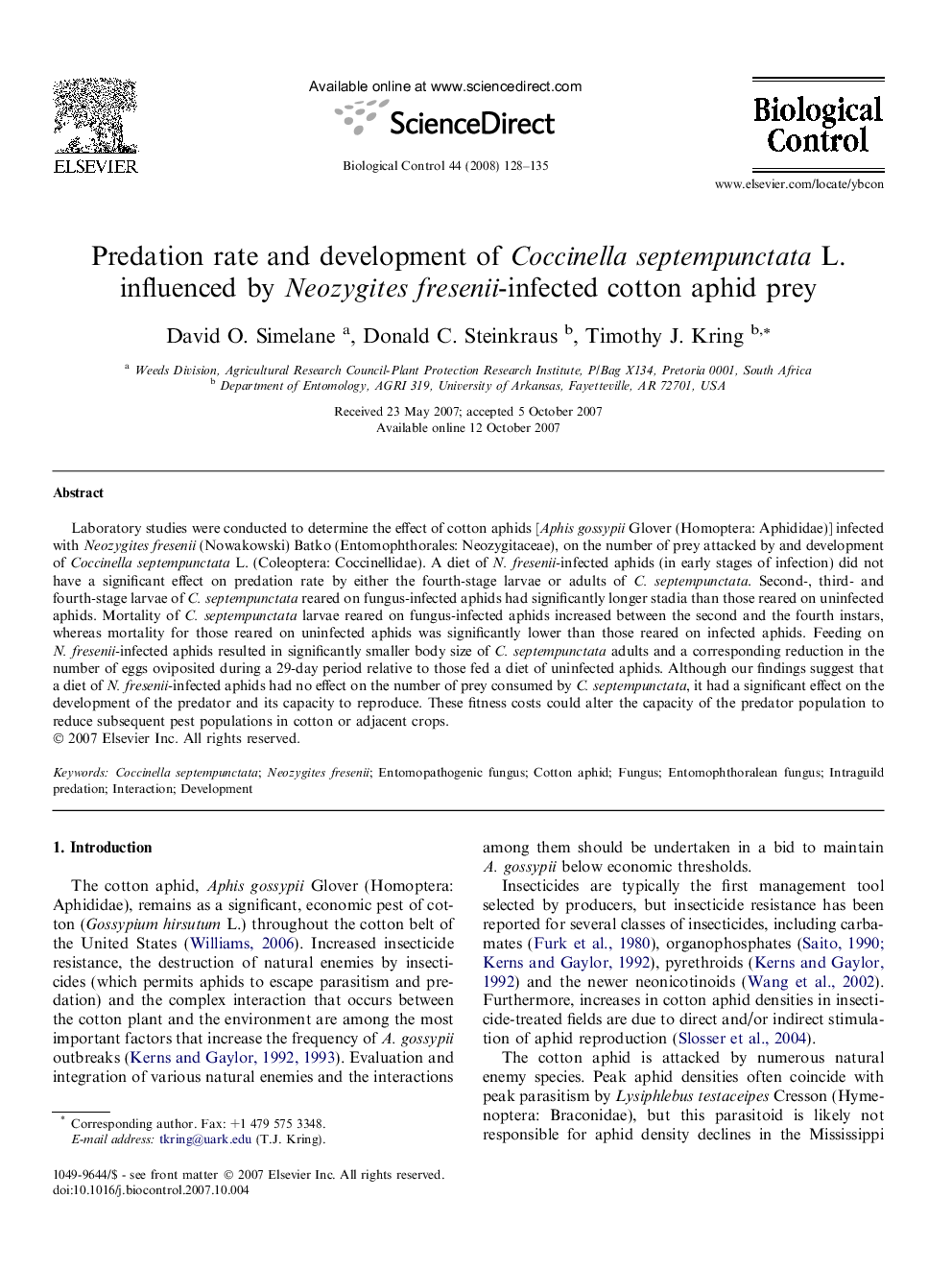| Article ID | Journal | Published Year | Pages | File Type |
|---|---|---|---|---|
| 4504888 | Biological Control | 2008 | 8 Pages |
Laboratory studies were conducted to determine the effect of cotton aphids [Aphis gossypii Glover (Homoptera: Aphididae)] infected with Neozygites fresenii (Nowakowski) Batko (Entomophthorales: Neozygitaceae), on the number of prey attacked by and development of Coccinella septempunctata L. (Coleoptera: Coccinellidae). A diet of N. fresenii-infected aphids (in early stages of infection) did not have a significant effect on predation rate by either the fourth-stage larvae or adults of C. septempunctata. Second-, third- and fourth-stage larvae of C. septempunctata reared on fungus-infected aphids had significantly longer stadia than those reared on uninfected aphids. Mortality of C. septempunctata larvae reared on fungus-infected aphids increased between the second and the fourth instars, whereas mortality for those reared on uninfected aphids was significantly lower than those reared on infected aphids. Feeding on N. fresenii-infected aphids resulted in significantly smaller body size of C. septempunctata adults and a corresponding reduction in the number of eggs oviposited during a 29-day period relative to those fed a diet of uninfected aphids. Although our findings suggest that a diet of N. fresenii-infected aphids had no effect on the number of prey consumed by C. septempunctata, it had a significant effect on the development of the predator and its capacity to reproduce. These fitness costs could alter the capacity of the predator population to reduce subsequent pest populations in cotton or adjacent crops.
